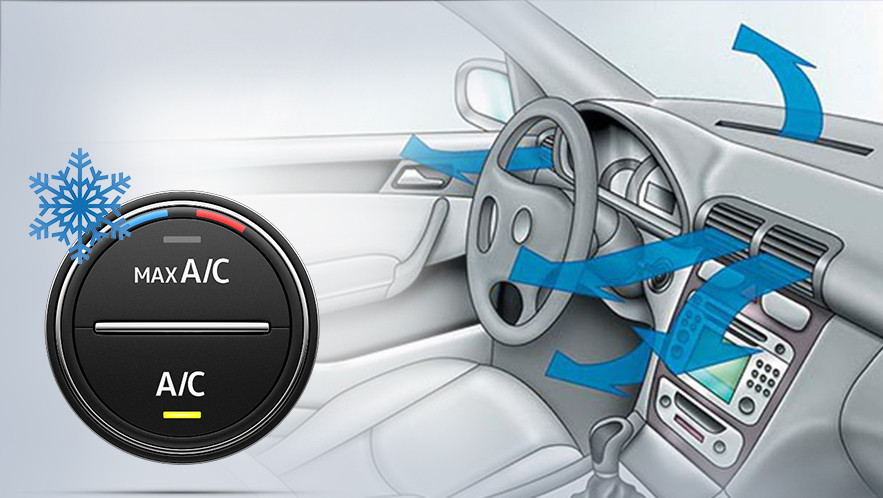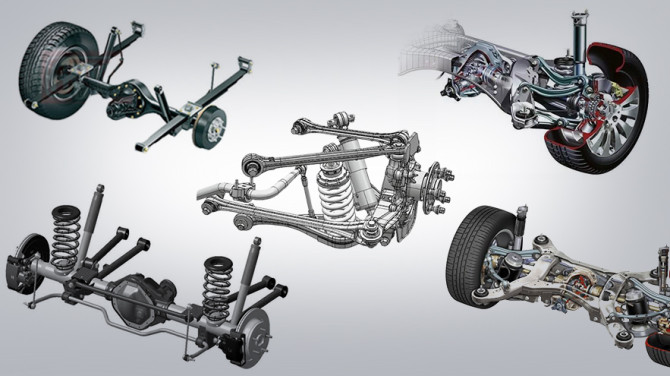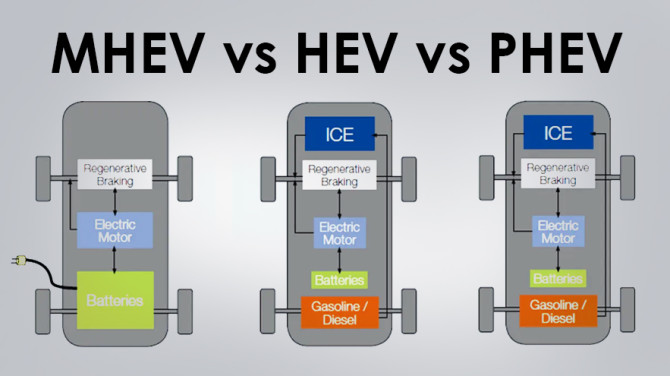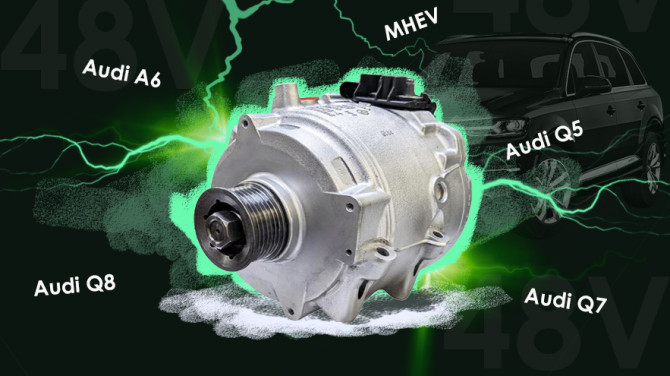Why doesn't the air conditioning in your car work

During the hot season, a properly functioning air conditioning system is not a luxury, but a necessity, both at home and in the car. Drivers and passengers expect a comfortable microclimate in the cabin, so a malfunctioning air conditioner quickly becomes a serious problem. Car owners often find that their car's air conditioner is not cooling or is working intermittently. This can be due to a number of technical faults that require professional attention.
Eight most common car air conditioner faults
A car air conditioning system consists of many components, each of which performs an important function. The system is based on the following parts:
- Compressor – builds pressure in the air conditioning system, driven by a drive belt.
- Compressor clutch – allows the compressor to start or stop to regulate the refrigerant pressure.
- Fan motor – circulates cold air from the evaporator to the car interior.
- Condenser – a heat exchanger that cools and reduces the pressure of the refrigerant. It facilitates the transition of the refrigerant from a gaseous to a liquid state.
- Dehumidifier – a component that separates gas and liquid, as well as cleans the system of moisture and foreign impurities.
- Expansion valve – a thermostatic device located between the condenser and the evaporator, which reduces the pressure and temperature of the refrigerant before it enters the evaporator.
- Evaporator – responsible for supplying cooled refrigerant at a low temperature to the air flow directed into the car interior.
A malfunction in one component leads to a decrease in efficiency or a complete shutdown of cooling. Here are the 8 most common air conditioner malfunctions in cars that are most often diagnosed in practice:
- Refrigerant leak
The air conditioning system is closed, and any leak leads to a gradual decrease in pressure. Leaks usually occur at pipe connections, seals, and damaged pipes. If the lack of refrigerant is not compensated for a long time, the compressor will run “dry,” which will lead to serious malfunctions. - Broken air conditioner compressor
The compressor is the heart of the air conditioning system. It is responsible for circulating the refrigerant in the system. When the bearings, couplings, or internal parts wear out, the compressor simply stops working. The consequences are a complete lack of cooling, noise during operation, or even jamming. - Clogged dryer or filters
Filter elements are designed to trap moisture and dirt. If they are dirty, the passage of refrigerant is impeded and the system loses performance. This can also cause corrosion of the expansion valve or evaporator and requires comprehensive diagnostics. - Electrical problems
Electrical faults are a common reason why car air conditioners do not work. A broken relay, blown fuse, faulty pressure or temperature sensor—all of these can prevent the system from starting. Checking the electrical circuits will help identify the problem and fix it quickly. - Clogged or malfunctioning expansion valve
This valve regulates the amount of refrigerant supplied to the evaporator. If it is dirty or mechanically damaged, the temperature in the passenger compartment will not drop. In some cases, the system cools too weakly or switches off periodically. - Dirty or oxidized evaporator
Dirt, mold, or oxidation of system components reduce heat transfer and cause unpleasant odors. If warm air is coming from the vents and the compressor and fans are running, check the evaporator. - Insufficient oil in the system
Lubricant in the air conditioning system is necessary to lubricate the moving parts of the air conditioning compressor. It circulates together with the refrigerant, and when the refrigerant leaks, the lubricant is also lost. Lack of lubrication leads to overheating, bearing wear, and compressor seizure—one of the most common causes of car air conditioner failure. It is important to check and top up the oil level when refilling with refrigerant, which is often ignored by uncertified service centers. - Faulty air ducts
Even with the cooling system working properly, no air coming into the cabin indicates a broken fan or speed regulator. Drivers often confuse this malfunction with problems with the air conditioner itself.
In addition, it is worth remembering that the capabilities of the air conditioning system are somewhat limited. If the car is parked in the sun in summer, its interior can heat up to 60°C or higher under the influence of sunlight. Even the most powerful air conditioner will not help here. In such cases, before turning it on, you need to cool the interior additionally: while still parked, open all the doors and windows in the car and drive the first few hundred meters with the windows open. Only then can you turn on the climate control system.
Signs of malfunction
Timely detection of symptoms will help you avoid expensive air conditioner repairs in the future. Most problems do not appear instantly — they are preceded by warning signs.
Here are the most common signs that indicate a malfunction in your car's air conditioner:
- The air coming from the vents is barely cool or warm.
- The compressor is running intermittently or does not turn on at all.
- There is an unusual noise when the system starts up.
- The interior feels damp or musty – this could be a problem with the evaporator or fungal growth.
- The air conditioner is “blowing” but the air temperature does not change – this indicates a lack of refrigerant or a faulty valve.
- Increased fuel consumption when the air conditioner is running – this may also indicate a malfunction.
If the air conditioner in your car is not cooling properly or there are other suspicious symptoms, you should contact a repair shop as soon as possible. Each malfunction has its own characteristics, and a complete check of all components of the air conditioning system is necessary for an accurate diagnosis.
Causes of damage to the air conditioner in a car
To effectively solve the problem, you need to know its source. The causes of air conditioner malfunction in a car often lie in improper operation or wear and tear of components.
Main factors:
- Lack of regular maintenance – the most common source of all problems.
- Leaks in connections after an accident, impact to the underbody, or vibration.
- Loss of tightness due to corrosion of pipes or the condenser.
- Wear or overheating of the air conditioner compressor under prolonged loads.
- Use of low-quality or incompatible refrigerant.
The longer you put off checking, the more complicated and expensive the repair will be. Pay attention to the most common causes of malfunctions and take preventive action.
How to maintain your air conditioner
Regular air conditioning system maintenance is not just preventive care, but a necessary condition for its stable and long-lasting operation. Even if the air conditioner is currently working properly, unchecked operation can lead to hidden damage that will eventually develop into serious malfunctions.
Comprehensive car air conditioner maintenance usually includes the following items:
- Pressure testing of the system – allows you to detect refrigerant leaks or seal wear.
- Cleaning the dryer, evaporator, and replacing the cabin filter – prevents air contamination and maintains cooling efficiency.
- Checking the pressure level in the circuit and refilling the refrigerant – according to the manufacturer's specifications.
- Checking the amount of oil in the system. This is critically important: the oil circulates with the refrigerant and lubricates the moving parts of the air conditioner compressor. When refrigerant leaks, the system also loses oil, which often goes unnoticed. Lack of lubrication leads to overheating, wear, and failure of the compressor.
- Assess the condition of the compressor clutch, blower, and check the sensors and electronics.
The most responsible drivers service their air conditioners once every 1–2 years, especially before the summer season. If the car is used in urban conditions or in high humidity, preventive maintenance is required more often.
To avoid situations where the air conditioner in your car does not cool properly or does not work at all, you should regularly maintain all components of the air conditioning system, including checking the oil. This is inexpensive compared to repairs, but critical for maintaining comfort in the cabin.
Troubleshooting methods
When a problem arises, the main thing is not to delay. Improvised methods only make the situation worse, and car air conditioner repair requires a professional approach.
Methods for troubleshooting:
- Eliminate leaks and refill with refrigerant.
- Replace the expansion valve, condenser, dryer, or compressor.
- Thoroughly clean the system components and disinfect the evaporator.
- Diagnostics of electronics: relays, sensors, wiring.
The more accurately the cause of the air conditioner malfunction is identified, the more effective the repair will be. The main thing is to contact experienced specialists.
Where to repair an air conditioner?
If you are looking for a reliable service in Warsaw, STS auto repair shop is at your service. We specialize in a full range of diagnostics, maintenance, and repair of car air conditioning systems.
Our advantages:
- Many years of experience and certified technicians.
- Modern equipment for checking tightness and refrigerant levels.
- Fast and high-quality repair of broken air conditioners in cars of any brand.
- Possibility of installing an air conditioner “from scratch” — the perfect solution if your car does not have air conditioning.
- Warranty on all types of services.
Contact STS – we know how to keep your car cool, whatever the season!
Don't ignore even minor symptoms – your air conditioning system needs just as much attention as your engine. Regular air conditioning maintenance and timely repairs guarantee a comfortable journey in any weather.



